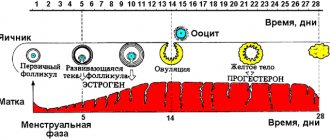Cleaning an apartment during pregnancy
Women with income can afford to hire a maid for household chores, but what about others whose financial situation does not allow for staff costs for cleanliness? You need to find out what types of cleaning are strictly prohibited when carrying babies and what types of work you can do right up to the maternity hospital.
Any of these points has its own characteristics and clarifications, so it’s worth going through everything in order. Let's define the main nuances:
- Physical activity should not be prolonged. No more than 1 hour a day.
- Avoid chemicals and if you wash by hand, use only natural substances (powder for newborns, baby and laundry soap).
- Carry out cleaning activities without sudden movements, bending or squatting.
- Take breaks for rest or short naps.
- At the slightest sign of discomfort, notify your loved ones, or immediately consult a doctor.
Is it possible to wash floors by hand?
Every modern woman has a whole list of endless tasks, and the longer the term, the more difficult it is to cope with her duties as a keeper of the hearth. It’s easier when a woman is carrying a child as a housewife, but if the expectant mother works and her schedule is busy, there is not always time left even for rest, not to mention daily cooking and maintaining cleanliness.
Working mothers go on maternity leave no earlier than 7 months. They come home from work tired, knowing full well that they need to think about the menu for the next day and clean up a little. Washing the floors should be postponed until a free day, when you have the energy for physical activity. A prerequisite is the presence of auxiliary equipment: a mop with a hands-free spin mode. Never bend over at the waist. If you need to bend over, bend your knees and make a smooth downward movement with your body.
Is it worth washing windows?
Women living in the private sector know firsthand that windows are something that has to be washed constantly. All it takes is a little rain to leave unsightly streaks on the windows. You can wash windows during pregnancy, provided that the object to be washed is at eye level. It is forbidden to raise your arms above your head or make sudden movements in this direction.
Under no circumstances should windows be washed with chemical sprays. The use of stepladders, chairs and other objects that can be stood on is also prohibited to avoid the risk of falls. To wash windows, purchase a special tool with a long handle that will allow you to not raise your arms above chest level.
Is it possible to vacuum clean
If wet cleaning has a number of limitations, then such a harmless activity as cleaning with a vacuum cleaner, a safer procedure, also has some limitations. A vacuum cleaner can easily replace the work of a broom, the use of which is not recommended during pregnancy. Use vacuum cleaners with a long handle that won't force you to bend forward too much.
It is better to vacuum with the windows open to allow fresh air into the house and reduce the amount of dust fibers in the air. Do not make sudden movements forward, but vacuum smoothly and slowly.
Is it possible to stretch while wiping dust?
Wet cleaning of the room should be done as often as possible, but it is better for a pregnant woman to take care and avoid hard-to-reach places that she will have to reach for. Wipe away dust that is at eye level. Climbing onto benches and reaching into cabinets is not recommended. It’s better to ask one of your relatives to wipe the dust there.
Cleaning products
During pregnancy, sensitivity to various household chemicals increases. Therefore, when cleaning the floor, it is better to use those compounds that will not cause allergies or lung spasms. Among the products that are safe for the health of the expectant mother:
- shampoo;
- vinegar;
- salt;
- soda;
- lemon;
- liquid soap.
All the components listed in the list are found in every home. These products are completely natural and will not harm the woman. Commercially produced chemicals emit toxic fumes and can cause severe irritation to the respiratory tract and nasopharynx. The consequences of contact with such substances can be dire: bleeding and hospitalization. By eliminating the use of powerful cleaning products, you can save your family budget and maintain your health.
Knowing the rules of proper cleaning, the expectant mother can easily cope with any household work. And she will do it quickly and efficiently. But, if your overall health leaves much to be desired, and the floor needs cleaning, it is wiser to ask your husband for help. After all, this is the person closest to a woman, who is just as eagerly awaiting the birth of a strong and healthy baby.
It turns out that general cleaning is not only labor-intensive, but also not always safe for a pregnant woman. However, by following a number of rules, you can eliminate the negative aspects of this process.
The expectant mother should try to eliminate all unfavorable aspects associated with cleaning. The task of the mistress of the family also includes the rational organization of household work, dividing it among all family members. Remember that while waiting for a baby, a woman is not recommended to overwork, she should rest more, avoiding overwork, so you have every reason to count on the help of family and friends.
Physical activity during pregnancy
Day-to-day housekeeping and house cleaning can sometimes require significant physical effort. Moderate physical activity during a normal, uncomplicated pregnancy is useful and necessary for every expectant mother. It helps improve the functioning of the nervous, respiratory, and cardiovascular systems, supplying tissues, including the growing child’s body, with oxygen and essential nutrients. Movement helps train muscles, increase endurance, and even improve the mood and psychological well-being of the expectant mother. However, pregnancy imposes a number of restrictions on physical activity, including during cleaning.
You should consult with your doctor about the acceptable level of physical activity during pregnancy, since in each case this level is determined individually.
The expectant mother is prohibited from heavy and excessively intense exercise. It is necessary to exclude sudden movements, active bending, excessive stretching, bending and pressure on the abdomen, jumping, deep squats, movements that cause excessive bending of the back, physical overexertion, and lifting weights of more than 5 kg should also be avoided.
If pregnancy is progressing normally, when cleaning, a woman should:
- do not lift or move heavy objects, do not bend sharply (for example, when wiping dust, sweeping or washing floors, or needing to pick something up from the floor);
- during advanced stages of pregnancy, when the belly is already noticeably enlarged, avoid movements that cause pressure on the abdomen;
- do not work at heights (washing windows, hanging curtains, standing, for example, on a stepladder, chair, table), as in this case you can lose your balance and fall;
- do not raise your arms high (when washing windows, hanging laundry, curtains), as this causes tension in the abdominal muscles;
- The most important thing is not to overwork and focus on your own well-being.
The reason for these restrictions is that even during a normal pregnancy, all the woman’s organ systems experience increased stress. The load on the cardiovascular and musculoskeletal systems especially increases. This happens because during pregnancy a third circle of blood circulation is formed - the uteroplacental, through which the oxygen and nutrients necessary for the development of the baby are supplied to the fetus; The volume of circulating blood and heart rate increase. Due to an increase in body weight and a shift in the center of gravity during pregnancy, the spine, joints and veins of the legs experience increased stress. And any physical activity itself increases the functional tension of these organ systems, which, if the load is excessive, can lead to disruption of the body’s adaptive capabilities, the occurrence of painful symptoms, the development of pregnancy complications and the aggravation of existing diseases.
In case of complicated pregnancy, all of the above recommendations remain the same, but their implementation is more strict, and the doctor may prohibit some types of exercise, including home exercise. If there is a threat of miscarriage, low placenta (the placenta is located close to the entrance to the uterus), chronic concomitant diseases (arterial hypertension, kidney disease, heart defects, unstable diabetes mellitus, etc.), physical activity, especially in the first and third trimesters, should be significantly limited. Sometimes these restrictions remain for the entire period of pregnancy.
Household chores should be stopped immediately if a nagging pain in the abdomen or other painful sensations occurs, shortness of breath, palpitations, severe fatigue, or dizziness occur. These symptoms indicate that the load has exceeded the individually permissible maximum and cannot be continued, as this is dangerous due to the development of serious complications, including termination of pregnancy or premature birth at a later date. If symptoms persist for a long time after stopping exercise or are severe, you should immediately seek medical help.
Timely rest during any physical activity is the key to good health and prevention of its adverse effects. Therefore, after every 15 minutes of cleaning, take short breaks, changing your body position and giving your muscles a chance to relax.
Allergy to dust
Hormonal changes during pregnancy lead to changes in the functioning of many organ systems. The functioning of the immune system also undergoes significant changes. Therefore, pregnancy can provoke the emergence of new allergic reactions to substances that did not previously cause allergies (for example, house dust), or contribute to a change in the course of pre-existing allergic diseases.
To prevent the spread of dust, it is recommended to wipe it with a soft damp cloth, such as microfiber, or other soft cloth. Special dust brooms that collect dust using static electricity can also be handy. The use of special chemicals helps in wiping off dust and prevents its accumulation in the future. However, during pregnancy, such products should be used with caution: it is advisable to minimize contact with various chemicals, in particular household chemicals, due to the increased tendency of many expectant mothers to allergic reactions. When using household chemicals, it is recommended to give preference to liquids rather than aerosols, as this prevents the substance from getting on the floor, which makes it extremely slippery and dangerous.
It is advisable to ventilate the room: this helps “not inhale dust” when cleaning. It is also possible to use a mask. When cleaning, avoid sudden movements, bending, or putting pressure on your stomach. Raising your arms above your head and tense postures cause an increase in the tone of the uterus, which, of course, is undesirable during pregnancy.
If the expectant mother is diagnosed with bronchial asthma or a severe allergic reaction to dust, cleaning and dusting will have to be entrusted to someone else (family members, housekeeper, etc.).
Is it possible to vacuum clean
Cleaning with modern vacuum cleaners has become a completely easy and convenient process. Special attachments allow you to remove small debris and dust from the floor, furniture surfaces, clean curtains, carpets, and wet clean the room. In modern apartments, special devices are sometimes installed that allow dust to be sucked in through special cracks near the floor (split systems).
Pregnant women should remember that they are prohibited from lifting weights weighing more than 5 kg. Therefore, you should not carry the vacuum cleaner in your hands from room to room - let it roll on wheels: modern models are quite mobile and easy to move. When cleaning, you should not bend over - your back should remain straight, so hold the vacuum cleaner by the top of the pipe. When using a vacuum cleaner, make sure not to stay in one position for a long time: this can cause tension and back pain, and rapid fatigue. Filters and dust collectors in the vacuum cleaner should be changed promptly to avoid the back spread of dust and air pollution in the room.
How to properly wash the floor
When sweeping the floor, the expectant mother is also advised to avoid sudden bends. If you need to lift something, you should kneel down or squat down, since bending over with straightened legs contributes to tension in the abdominal and perineal muscles. This is especially undesirable in the pathological course of pregnancy, as it can lead to the development of complications: threat of miscarriage, placental abruption (premature - before the birth of the child - separation of the placenta from the wall of the uterus), etc.
For the convenience of the expectant mother, when washing the floors, you can use special devices - mops with self-squeezing, telescopic (retractable) handles, buckets with a device for squeezing water out of the mop. However, during pregnancy it is not prohibited to wash floors by hand while kneeling. With this position, the spine is unloaded, which experiences increased tension when the body is in an upright position. In addition, in this position, the enlarged uterus does not exert excessive pressure on the organs of the retroperitoneal space - kidneys, ureters, as a result of which their function improves. Therefore, washing floors while kneeling (for convenience, you can put a small soft rug or fabric folded in several layers under them) is even useful during pregnancy.
When getting up from the floor, it is recommended to lean your hand, for example, on a chair or sofa. The squatting position is also not contraindicated for the expectant mother, however, it is difficult to remain in such a position for a long time. Therefore, when washing floors by hand, it is advisable to change your posture: this prevents rapid fatigue.
You should not pour a lot of water into the bucket so that it is not difficult to carry, because it is not recommended for a pregnant woman to lift more than 5 kg. The safest thing to do is to fill a bucket with water without lifting it, using a shower or a special tap, and when cleaning, do not carry it from room to room, but go to the bucket to rinse the rag.
Wash and iron
With the advent of automatic washing machines, the washing process has become completely easy. In cases of hand washing, a pregnant woman must avoid sharp bends and strong bends of the spine: the back should be straight - for this, the basin with water should be located at a sufficiently high level. To avoid muscle tension in the legs, one of them should be placed on a small bench. The position should be changed periodically. The same position is suitable for ironing clothes. The ironing board should be at such a level that you do not have to bend over. It is recommended that the expectant mother iron her clothes while sitting, as this position causes less fatigue than standing in one place for a long time.
To dry clothes, it is most convenient to use floor dryers, which eliminate raising your arms to hang clothes at a height - we remind you that this position helps to increase the tone of the uterus and is undesirable for pregnant women.
Window cleaning
Washing windows is quite hard physical work, so it is better for expectant mothers to entrust this task to one of their family members or friends, use hired labor, or postpone this activity altogether. If you still need to wash the windows yourself, you should take frequent breaks (every 15 minutes), dividing all the work into small fragments.
When cleaning windows, you often need to climb higher to thoroughly clean all surfaces. It is not advisable for a pregnant woman to stand on stools, chairs, or stepladders, as if you move awkwardly or feel dizzy, you may lose your balance and fall. Therefore, special devices should be used to clean windows, such as sponges on telescopic handles.
Household chemicals and pregnancy
Detergents and cleaning products that are firmly established in our lives may contain a number of components that have an adverse effect on the body of the expectant mother and her baby. According to scientific research, excessive use of household chemicals during pregnancy can lead to an increased tendency to allergic reactions and even a number of developmental defects in the child. Chlorine and chlorine-containing substances, the main components of bleaches, stain removers, and some washing powders, are considered especially dangerous. Chlorine provokes severe allergic reactions, has an irritating effect on the skin and mucous membranes, and has carcinogenic (provoking the development of tumors), mutagenic (causing mutations) and teratogenic (leading to fetal deformities) effects. Toulene and xylene, which are part of aerosols, also have teratogenic properties. Enzymes, fragrances, and alkylphenol ethoxylate contained in many detergents cause various allergic reactions.
To reduce contact with household chemicals, it is advisable for the expectant mother to use rubber gloves; if detergents come into contact with the skin, they should be thoroughly rinsed with clean running water. When using aerosols, you must use a respirator. But it’s best to completely eliminate “chemistry” from everyday life, at least for the duration of pregnancy. Instead of air fresheners, you can use frequent ventilation of rooms, and replace aerosols and window cleaning sprays with solutions of ammonia or starch in warm water (in a ratio of 1:10 and 1:5, respectively).
In conclusion, let us remind you: the most important thing is not crystal cleanliness around, but your good health and mood. Therefore, do everything to make cleaning an easy and safe task for you.
Despite fatigue and malaise, pregnant women try to keep the house clean and actively take care of its comfort.
Psychologists say that even those women who previously did not pay special attention to cleaning the house become notorious cleaners. It's all due to hormones. They are the ones who put the pregnant woman in such a state that she literally cannot tolerate a speck of dust in the apartment. Often the expectant mother cannot even restrain herself, although she would have to.
Try not to refuse the help of your husband or older children in household and other matters. Now you need to take care of your strength and health.
There are a number of tasks that are either too difficult for the expectant mother physically or harmful. Let's figure out what household chores are contraindicated for pregnant women.
What detergents and cleaning products should not be used during pregnancy?
Any cleaning or washing dishes is accompanied by the use of detergents. If we are talking about washing in a washing machine, then many expectant mothers use ordinary powder, believing that without coming into close contact with it, they will not harm themselves.
The fact is that usually powders sometimes cause allergic reactions, which are detected during pregnancy. Therefore, it is better to use laundry detergents that are approved for cleaning clothes for newborns, based on natural elements.
Avoid detergents that contain the substances listed below and buy safe substitutes instead. The myth that powders for newborns and laundry soap do not wash things well will be dispelled as soon as a woman tries these products in practice.
Housework and pregnancy. how to do it correctly
The expectant mother should categorically refuse work that involves heavy lifting or sudden movements, so activities such as rearranging furniture, purchasing groceries for the whole family, lifting weights (even if it is the most beloved child weighing 10 kg) should be transferred to the shoulders of relatives and loved ones.
A pregnant woman can please herself with “light” types of housework: cooking, cleaning the apartment, washing (using a washing machine, of course) and ironing.
But even when performing such work, it is necessary to take into account some general recommendations. So, for example, if a job involves standing in one place for a long time and causes discomfort in the lower extremities, then you should refuse it. Also, you should not work “to exhaustion” and overcome fatigue - at the slightest sign of fatigue, you need to stop working and rest.
Cooking, ironing
Prolonged standing in one place leads to stagnation of blood and lymphatic fluid in the vessels of the legs, causing swelling and varicose veins.
How to stand correctly?
When performing standing work, the expectant mother needs to periodically - preferably every hour for 5-7 minutes - arrange a rest for herself: sit on a chair with a low bench under her feet. This position improves blood circulation and relaxes the back muscles. If you can’t sit down, then you need to find the correct, most comfortable body position. Often a pregnant woman just wants to straighten her back and “pull” her stomach forward, this is due to a shift in the center of gravity, which during pregnancy is located much higher than necessary for balance - in the solar plexus area. It turns out that the “extra” weight (the constantly enlarging uterus, fetus and amniotic fluid) in front further disrupts the “fragile” balance, leading to aching pain resulting from overload of the back muscles.
Is it possible to wash floors during pregnancy: tips
Pregnancy is a normal physiological state of a woman. Many people say to themselves that they are not sick, but pregnant. Therefore, you should not protect them from everything, but it is still worth taking care of dosing physical activity.
Almost all working women continue to do this until 7 months, after which they legally go on maternity leave. But at home, one way or another, they continue to do household chores, among which cleaning the room is one of the first places.
Since the body of the expectant mother now bears a double load, the usual way of life inevitably changes. In the early stages, even a healthy woman adapts to the new position. During this period, if the woman does not experience any inconvenience, then she does the housework with her own hands.
Cleaning the floor (vacuum cleaner or broom)
A bent position for a long time leads to extreme fatigue and back pain. This includes working with a vacuum cleaner, broom, and mop. You risk earning yourself lumbosacral radiculitis and varicose veins. It is clear that in most cases in a young family the woman is responsible for cleaning the house. If you cannot shift this responsibility to one of your relatives, then take frequent breaks to rest. Try to distribute the load: today they cleaned one room with breaks of 10 minutes, tomorrow - another.
Permissibility of physical activity: is it possible to wash the floors yourself?
Housework is a must
What can a pregnant woman do without risking her health?
There are many such things:
- handicrafts - knitting, sewing, embroidery and more;
- walks in the open air;
- swimming - if there are no contraindications;
- special exercise for pregnant women - yoga.
But, during this special period in the life of the expectant mother, there are not only pleasant little things, but also those that are difficult to do without in everyday life:
- cooking food;
- wash;
- ironing;
- cleaning, including mopping floors.
Some young women would really like to know whether pregnant women can wash floors? If the period is still very short, there is no toxicosis or unpleasant sensations, then wet cleaning should be done daily. At the same time, pay attention to the inadmissibility of overloads.
Rules for cleaning floors during pregnancy
Mop and bucket - helpers for a pregnant woman
You cannot stay in one position for a long time, even if the woman is just sitting. It is necessary to change the position of the body every hour, it is advisable to do light exercises, perhaps walk .
During pregnancy, the composition of connective tissue changes. It becomes fragile, which means more vulnerable.
That is why heavy physical activity is excluded in any trimester of pregnancy. You cannot put your body and the life of your unborn child in danger. At this time, it is better to refrain from lifting loads, washing windows, and do not move heavy objects.
How to wash floors during pregnancy to avoid back pain? Recently, there are a lot of devices for cleaning floors. At a hardware store you can purchase a mop or rag made from modern materials, which will greatly facilitate this difficult work.
Along with a mop for washing the floor, you need to purchase a bucket on wheels so as not to carry it in your hands. You need to pour water into it using a hose, a shower, or ask someone to help. And under no circumstances should you bend over while standing on straight legs.
Recommendations for cleaning the floor
Pregnant women should not wash floors while squatting.
Instructions for cleaning floors to avoid dizziness, joint pain and fatigue:
- the mop should have a mechanical spin - a minimum of effort, and excess water is drained into a bucket;
- give preference to synthetic materials for a rag or mop - they are easier to care for and hygienic;
- use detergents that do not contain chlorine and do not have a strong odor to avoid intoxication;
- You can’t bend over and squat, it’s better to get down on one knee;
- rise using your hips;
- as a last resort, you can wash the floor while sitting on a stool.
Wet cleaning can be done in this way in the first semester. Later, when the abdomen enlarges and the load on the spine increases, heavy physical work should be avoided.
So is it possible to wash floors during pregnancy? How do women themselves answer this question?
Note! The floors need to be washed and there is no need to refuse help. Always remember that the health of the unborn baby depends on the well-being of his mother. In a clean room after cleaning, you can breathe better and dust does not accumulate.
Life of a pregnant woman: what is possible and what is not
Pregnancy, of course, is a normal physiological state, but still it makes its own adjustments to a woman’s normal lifestyle. Even if there are no threats or pathologies, the expectant mother still has to give up something, and do something else that she has never done before. The most constant occupation of all women is everyday life. Of course, it’s good when you can hire a servant and provide yourself with complete peace, even outside of pregnancy, it’s very pleasant. But most Russian women still clean, wash and cook themselves, so let’s take a closer look at what pregnant women can and cannot do.
Is it possible to wash floors during pregnancy?
Almost all young women ask whether it is possible to wash floors during pregnancy. If there is no threat of interruption, then a pregnant woman can do daily light cleaning herself using modern household appliances. That is, instead of a broom there is a vacuum cleaner, and instead of a floor rag there is either a special washing vacuum cleaner or a wringer mop. But you cannot wash the floors with a rag and your hands, since in this case the pregnant woman will have to move either bent over or on her knees and also bent over. This position increases the load on the spine and can also lead to compression of the abdomen.
Also, you should not sweep the floor with a broom. Firstly, this is too hard physical work, and secondly, it is better for a pregnant woman not to breathe dust. If there is little dust, you can wipe it with a cloth, but if the apartment is too dusty, then let someone else do it or use a small special vacuum cleaner.
Can a pregnant woman wash and iron?
If an automatic washing machine does the washing, and the woman is just hanging out the laundry, then, of course, it’s possible. You cannot hang laundry if the cord is located behind the balcony, especially for women in the last stages of pregnancy. This is due to the fact that, due to a large belly, the center of gravity shifts, and due to the action of hormones, the functioning of the vestibular apparatus is disrupted. A pregnant woman may feel dizzy or lose her balance. It is also advisable not to hang laundry on a fishing line that is stretched too high above your head. The reasons are the same: having lost her balance, a woman may fall to the floor, and since in the last stages the joint apparatus relaxes, there may also be a dislocation.
You cannot wash it by hand, as the pregnant woman will have to stand with her back bent, and this increases the load on the spine. In addition, standing for a long time is also not recommended. If there is no other way out, then it is better to wash while sitting on a chair and place the basin on a lower stool in front of you.
You can iron while sitting. There is no need to accumulate a very large amount of laundry. If there is a lot of laundry, then take periodic breaks: walk around, stretch your back and legs, lie down.
Can pregnant women cook?
You can, but you don’t have to stand at the stove for a long time.
Share with your friends!
Could you tell me where this is written?
LoveRussia, Vologda
about pregnancy??? don’t make me laugh... in my opinion, pregnant girls, if they care about their health and the health of their child, try to find out more about everything... I listen to doctors, friends, acquaintances, read and crawl on the Internet in search of information, but this does not mean that you need to believe everything... you just need to know yourself and your well-being... and about the floors: I think my husband can wash the floors... for example, read at least here in the library about the health of pregnant women - how to stand, how to walk, how to sit, what to do and what not...
Valentina I was on the site April 10, 04:47 Russia, Orel
I meant the connection between miscarriage and hands up. Well, if it’s funny, I’m only glad! Laughter prolongs life!
Olesya I was on the site January 11, 2014, 09:38 Russia, Moscow
Be sure to wash! This is a necessary physical activity for the muscles needed during childbirth. Of course, if you are tired or feel unwell, you need to rest or reschedule for another day. And if everything is ok, grab a rag and start charging! :)
Nadya ICQ 415323030 I was on the site 3 hours ago Russia, Moscow
Well, ironically, I had to wash the floor... at the end of the 7th month... although I was scolded for this, there was no other way... it so happened that we were then living with friends, and they had a dog... and kind guests fed it chicken bones, which this is absolutely contraindicated to do with all dogs... and she tore her intestines with them... well, in general, the poor animal suffered from crap in the corridor, and everyone was at work... well, I can’t leave all this... it’s impossible to walk... so I had to clean up... the only thing is I’m using buckets I didn’t carry it or pour it out... I filled it in a bucket with the shower and left it on the floor... whoever came home from work first poured the bucket out... and that’s all...
lenchen I was on the site June 15, 2013, 08:19 Russia, Molchanovo
If the doctor hasn’t prescribed rest and you don’t feel dizzy when washing the floors without a mop, then it’s better to wash than to sit in the dirt. In general, this position is even useful and it rocks the baby in the tummy.
In different pregnancies I washed and it happened that I didn’t wash for two months (due to the threat of miscarriage) and no one washed either - so we lived in the dirt.
But now my mop is great









